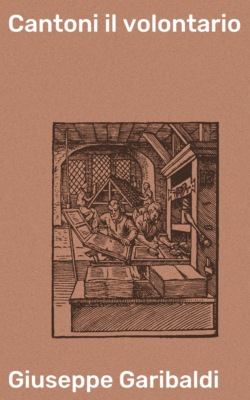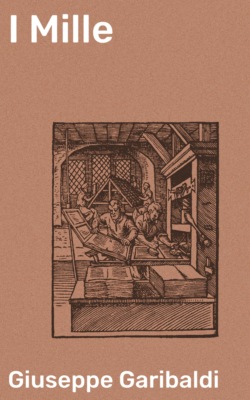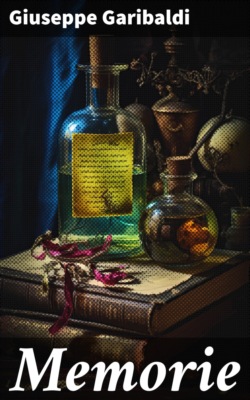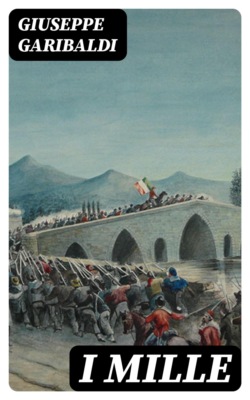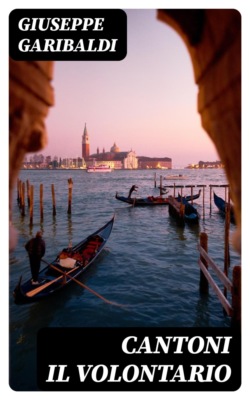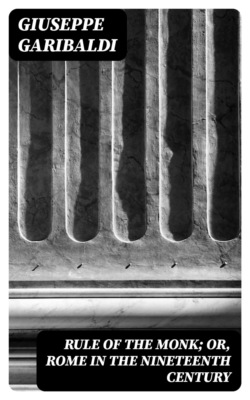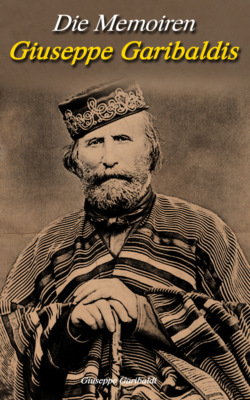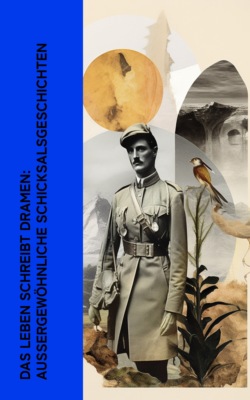Kitabı oku: «The Life of General Garibaldi», sayfa 11
CHAPTER XXVIII
PREPARATIONS FOR OUR RETREAT – ATTACKED ON THE WAY – BRAVERY OF MY ITALIANS – I NEVER DESPAIRED OF ITALY – THE NOBLE CHARACTER OF ANZANI – REACH SALTO – KINDNESS OF FRENCH PHYSICIANS – COLLECT AND BURY THE DEAD
The fighting began about one o'clock in the afternoon, and lasted until near nine in the evening. Night came on, and found us surrounded by many corpses and wounded men. About nine o'clock preparations were made for a retreat. The number of wounded was very large, including almost all the officers, viz.: Morrochetti, Casana, Sacchi, Ramorino, Rodi, Beruti, Zaccorello, Amero, and Fereti. Only Carone, Traverse, and a few others, were unhurt. It was an arduous and painful undertaking to remove them from the ground where they lay. Some were placed upon horses, which were numerous, while others, who were able to stand, were helped on, each by two of his comrades. When the arrangements had been made for the accommodation of the wounded, the other soldiers were formed in four platoons; and as fast as they were put in order, they were made to load themselves with some remaining ammunition, the less to expose themselves to the continual fire of the enemy. The retreat was then commenced, and I thought it a fine sight, – though there was but a handful of men, in close column, with orders not to fire a single shot before making the edge of the wood which borders the river Uruguay. I had directed the vanguard to take the wounded, feeling confident that the charges of the enemy would be made on our rear and flanks. As was natural, those unfortunate men fell into some disorder, which it was impossible to prevent; but they yet went on, all, it is believed, except two. The little column proceeded in the most admirable manner, so that I must ever speak of their conduct with pride. The soldiers fixed their bayonets before setting off; and keeping close ranks, they reached the designed place, though not for want of any exertions, on the part of the enemy, to hinder them: for every effort was made, by repeated charges from all quarters, and with their whole force. In vain did their lancers come up and give wounds to men in the ranks; the only return made was with the bayonet, while the soldiers pressed themselves more compactly together. On reaching the verge of the wood, we halted; and the order was given, "To the right about!" when immediately a general volley filled the enemy's files with dead, and they were all instantly driven back.
One of the most severe sufferings endured that day was from thirst, especially among the wounded.
Having reached the bank of the river, it may be imagined with what avidity the soldiers ran to the water. Some of them stopped to drink, while the others kept the enemy at a distance. The success of the first part of the retreat, now performed, secured the retreating troops less molestation on the remainder of their way. A chain of sharp-shooters was formed to protect the left flank, who kept up a continual fire, almost until they entered the city; and thus we moved along the bank of the river.
Anzani was waiting for us at the entrance of the city, and could not satiate himself with embracing me and my companions. He had never despaired, although the enterprise was so arduous. He had collected the few remaining men in the fortress, and replied to the enemy's summons to surrender, which they made during the battle, with a threat to blow up everything before he would submit. It is to be remarked, that the enemy not only assured him that all the Italians were killed or prisoners, but also the greater part of the soldiers with Baez. Still Anzani did not despair; and I have mentioned him to those of my fellow-citizens who at different times have despaired of Italy. Ah! there are few like Anzani! But he that despairs is a coward!
Our retreating troops entered Salto at midnight, and even at that hour we found all the soldiers and all the inhabitants awake. The latter came out with alacrity, and gave all possible attention and care to the wounded, bringing everything necessary for their relief and comfort. Poor people! Poor people, who suffered so much in the various vicissitudes of war, I shall never think of you but with a deep sense of gratitude!
I had several severe losses to lament in that remarkable affair, though the enemy were much the greater sufferers.
General Servando Gomez, who was the author of the surprise, and who seemed as if he would annihilate us forever, commenced his retreat on the 9th, hastily taking with him his shattered division towards Paisandu, with a great number of wounded men, and leaving the fields of San Antonio covered with dead. The first day after our arrival was occupied in giving attention to the wounded; and two French physicians rendered them the most important services. They were the physicians of the French ship L'Eclair, whose names have not been obtained, and Dr. Desroseaux, another young man, then for some time connected with the Italian Legion. He had fought all the way as a common soldier, and then devoted himself to the care of his wounded companions. But what most availed at that painful time were the delicate cares of the ladies of Salto.
The succeeding days were occupied in collecting and burying our dead. The battle had been so extraordinary, that I thought it ought to be commemorated by an unusual mode of interring the victims, and I chose a spot, on the top of the hill which overlooks Salto, and which had been the scene of successful battles. There was dug a trench for all, and then handfuls of earth were thrown in by the soldiers, until a tumulus rose, to stand as a memorial. A cross was then placed on the top, with this inscription on one side:
"Legione Italiana, Marina e Cavalleria Orientale."
On the other side:
"8th Febbrajo, 1846."
(The Italian Legion, and the Oriental Marine and Cavalry. – 8th February, 1846.")
The names of those killed and wounded in that brave fight have been preserved in the journals kept by Anzani.
CHAPTER XXIX
EFFECTS OF THE REVOLUTION IN MONTEVIDEO – CHANGE OF DUTIES OF THE ITALIAN LEGION – NO IMPORTANT MILITARY MOVEMENTS – MY OCCUPATION WITH THE MARINE – DIPLOMATIC NEGOTIATIONS – THE TEMPORIZING POLICY OF ROSAS – CHANGE OF ENGLISH AND FRENCH AGENTS AND ADMIRALS – EVIL CONSEQUENCES – RIVERA IN FAVOR IN MONTEVIDEO – MY OPERATIONS AT SALTO CONTINUED – SURPRISE VERGARA'S CAMP – LEAVE IT, TO RETURN
General Medina was now able freely to enter Salto with his suite; and he retained the superior command until the revolution made by Rivera's friends in Montevideo. Nothing important, however, took place in all that period.
The revolution in Montevideo in favor of Rivera gave a terrible blow to the affairs of the Republic. The war ceased to be national, and was directed by miserable factions. About the same time occurred the revolution in Corrientes, brought about by Madariaga, against General Paz. Those young chiefs, who had become illustrious by surprising deeds in delivering their country from the oppressive dominion of Rosas, now, for jealousy and thirst of power, debased themselves by the meanest treachery, and thus ruined the cause of their people. General Paz was obliged to leave the army of Corrientes, and retire to Brazil. Paraguay recalled her army after his departure; the troops of Madariaga, reduced by neglect to their own resources alone, were completely beaten by Urquiza; and Corrientes fell into the power of the Dictator.
The affair of Montevideo also proceeded no better, and few events of importance occurred. The Italian Legion, so justly esteemed for their honorable and daring exploits, had continued their accustomed service of advanced posts, alternating with the other corps of the capital. Anzani was with them; and, although no very important engagements took place, they never failed to prove themselves worthy of their fame.
I occupied myself more with the marine, fitting up some of the vessels which were most needed, and in cruising on the river Plata, in the schooner "Maypú."
In the meantime the French intervention proceeded every day, and no more coërcive measure was it proposed to apply to the solution of the problem; but several diplomatists, whom Rosas deluded and mocked at, were sent to negotiate, but obtained nothing from him better than insignificant armistices, which had no effect but to waste the limited means collected with difficulty in the besieged city. With her change of policy, France had changed her agents. Such men as Diffandis and Ouseley for ambassadors, and L'Ainé and Inglefield for admirals, worthy to sustain a generous policy, and dear to the public, were removed; and such men were substituted as were devoted to a policy inevitably ruinous to the people.
The Oriental government, powerless from the want of means, was obliged to submit to the dictates of the intervention. Deplorable situation!
Rivera, being restored to power by his partisans, removed all others. Most of those who had engaged in the noble defense from disinterested love of country, had retired, weary of the enterprise, or were displaced to make room for devotees of Rivera, and unfit men. I found, however, at Montevideo, (that city of marvellous changes,) the new elements of another army, and transported them to Las Vacas, on the left bank of the Uruguay. The soldiers of Montevideo were made for conquerors; and they proved it in their first encounters with the enemy in the country. At Mercedes, especially, they performed prodigies of valor; but the evil influence which misled Rivera at Arroyo Grande and India Muerta, beset him at Paisandu, where, after a victory, he saw his army defeated. At Maldonado he embarked again, to return to Brazil, whether more unfortunate or more culpable, it is difficult to determine.
The government of Montevideo having fallen into the power of Rivera, I was left mourning over it, and apprehending public sufferings. The old General Medina, appointed General-in-chief by the government, with the consent of the former not only yielded to events, but, the better to recommend himself to the favor of the new patron, intrigued against my friend; but they deceived themselves. Both Italians and Orientals loved him in Salto, and he would have been able, without fear of any one, to rise independent of the new and illegal power. But the cause of that unhappy people was too sacred in his eyes. He loved them, and ever denominated them as good-hearted and generous. To increase their distresses, by fomenting their internal dissentions, was wholly incompatible with his views and feelings.
To establish Rivera in power, the public squares of Montevideo were made scenes of bloodshed. At Salto the same fatal game was planned; but it proved impracticable. I contented myself with making reprisals, assuming, as at first, the command of the forces. At that time occurred the successful battle against the troops of Lamas and Vergara, on the 20th of May, 1846. Those two divisions, after the affair of San Antonio, where they fought under the command of Servando Gomez, had been reformed and reinforced; and they again occupied their positions around Salto, changing their encampments, but always keeping at some leagues' distance. We did not fail, now and then, to disturb our enemies as much as we could, especially when they went out to catch animals. One Major Dominguez, who had been sent for that purpose by General Medina, was completely discomfited, losing all his horses and some men. I had the positions of the enemy's camp examined by spies, and in the night of May 19th, I marched to attack him. I had with me about three hundred cavalry and a hundred legionaries – the remains of a battalion. Poor youths! they have since been sadly decimated! My object was to surprise the enemy's camp at early dawn; and we arrived at the spot, for once, exactly at the desired moment. I had the aid of Captain Pablo, an American Indian, and a brave soldier. His infantry were mounted, and they marched all night, and before break of day came in sight of the enemy's forces in the camp of General Vergara, on the right bank of the Dayman. The infantry then dismounted, and were ordered to attack. The victory was very easily obtained. The troops of Vergara immediately took to flight, and were driven into the river. They left their arms, horses, and a few men, who were taken prisoners. But the triumph was far from being complete; for the troops were to return, and we set off as the daylight increased. The camp of Lamas was separated from that of Vergara by a small stream; and, at the first alarm, the former had taken position on the top of a hill, which commanded both camps. Vergara, with the greater part of his men, had succeeded in joining Lamas. They were warlike and brave soldiers, made at the opening of the war.
Having collected, in the abandoned camp, all the serviceable horses, I pursued the enemy, but without success. Most of my cavalry were mounted on Rodomones, that is, horses caught and broken only a few days before; and the enemy were better supplied. It was therefore necessary to desist from pursuing them, and be content with the advantages gained, and take the road to Salto. We were, however, very unexpectedly favored, and in an important manner. While pursuing our march for Salto, we were in the following order: a squadron of cavalry in platoons, at the head; the infantry in column, in the centre; the remaining cavalry for the rear guard, likewise in column. Two strong lines of cavalry, commanded by Majors Carvallo and N. Fausto, covered our right flank; and the cavallada, with the horses of the infantry, marched on the left. The enemy, having reörganized, as has been said, and reconcentrated all their detachments, amounted to about five hundred men in cavalry. Being acquainted with my force, the enemy flanked us on the right, at a short distance, so that he seemed disposed to revenge himself.
I had placed Colonel Celesto Centurion in command of the cavalry, – a very brave man; while Carone commanded the infantry. The latter was particularly urged by me to guard against any confusion or disorder in his ranks, and to prevent it at any sacrifice. He was to preserve their order, which was that of close column, and never to make a movement by conversion, but only by flanks and right-about-face. The infantry was to serve as a point of support to Centurion, and also to re-form in any event that might happen. The enemy were emboldened, being increased by detachments.
Our troops proceeded over beautiful hills, for about two miles from the banks of the Dayman. The grass had but just begun to grow, but was very green; and the surface of the ground was undulated like the waves of the ocean, but lay in all the majesty of stillness, while not a tree or a bush formed any obstacle. It offered indeed a battle-field, and for the mightiest hosts.
CHAPTER XXX
ON THE MARCH BACK TO SALTO – SUDDEN ATTACK – DESPERATE DEFENCE – FLIGHT, AND PURSUIT – THE "BOLLA" – EXCELLENCE OF THE HORSEMEN – INCIDENTS
Having reached the border of a brook, I thought it better not to cross it, because our small force might be disordered in the passage, and the hill on the right concealed the great body of the enemy, who were not far off, and marching in a direction parallel to our own. I thought we would be attacked at that point; and the result justified my expectation. I halted, and, wishing to discover the enemy's condition, sent orders to Major Carvello, to "charge that line of the enemy quite to the hill." The charge was made, and with bravery, as far as the eminence, where the assailants stopped, and an adjutant came galloping up to me, to inform me that the enemy were marching towards us at a trot, and with their whole force in order of battle. No time was to be lost. The cavalry on the wings wheeled to the right, and were reinforced by the line, suddenly concentrated. The infantry formed on the right flank and towards the enemy. When the line reached the top of the hill, the enemy's line was marching upon us within pistol shot.
I must confess that the enemy had made a movement of which my troops would not have been capable, and which proved that they were brave, warlike, and well commanded. Seeing this, without taking time for reflection, I gave the signal for a charge: for as soon as I discovered them, the enemy were converging, from the centre to the wings, laterally; and, after having made about half a circle beyond our flanks, they charged our cavalry by platoons in flank, and so rendered our infantry useless. I did not hesitate, but ordered my cavalry to close in, and charge, to avoid losing the advantage of the impetus of the horses. And indeed they charged well, and fought bravely.
Several charges were made by the cavalry on both sides, and with different results. It would be difficult to decide which party displayed most valor. The enemy being superior in numbers, and in the excellence of their horses, drove back ours upon our infantry, and soon measured our lances with their bayonets. The latter, having reformed, with the aid of their numbers, drove them back, fighting them hand to hand. The young Italians then performed their feats to admiration; and I remember them, and the 20th of May, with peculiar pleasure. Compact as a redoubt, exceedingly active, they ran to every point where their assistance was needed, always putting the assailants to flight. The enemy fired very few muskets, but those few were deliberate and sure.
At last the enemy, having become disordered by numerous charges, became only a deranged mass; while, on the contrary, our troops, supported by the infantry, were always able to reörganize for fighting well. The engagement had lasted about half an hour, in that manner, when, being no longer approached by organized forces, we were drawn up anew and made a decisive charge. The enemy then broke, disbanded, and took to flight. A cloud of "bollas" whirled about in the air, and presented a curious spectacle.
The bolla is one of the most terrible weapons used by the South American horsemen. It consists of three balls, covered with leather, and fastened to three leathern cords, which are connected. One of the balls is held in the hand, while the other two are flourished in the air over the head, when the order is given to charge. When a horse is struck in the leg with one of them, it stops him, and sometimes makes him fall; and in this way many captures are made. The South American cavalry soldier is second to none in the world, in any kind of combat; and in a defeat, they retain their superiority in pursuing their enemy. They are stopped in their course by no obstacles in the field. If a tree does not allow them to pass while sitting erect, they throw themselves back upon the crupper of the half-wild horse, and disappear among the trappings of the animal. They arrive at a river, and plunge in, with their arms in their teeth; and sometimes wound their enemy in the middle of the stream. Besides the bolla, they carry the terrible Coltelo, or knife, which, as before has been mentioned, they keep with them all their lives, and manage with a dexterity peculiar to themselves. Woe to the soldier whose horse tires! "Bollado," or struck with the bolla, he cannot defend himself from the knife of his pursuer, who dismounts to strike him with it in the throat, and then mounts again, to overtake others. Such customs prevail among them, that sometimes, when men of courage meet, even after a victory, scenes occur which would shock a reader if they were described.
One of those encounters I witnessed. It occurred at a short distance from a line, between a party of our soldiers and one of the enemy, whose horse had been killed. Having fallen to the ground, he rose and fought on foot, first with him who had dismounted him, whom he treated very roughly. Another then came to his assistance, then another; and at length he was engaged with six, when I reached the spot, in order to save the life of the brave man – but too late.
Our enemy was now entirely routed, and the victory complete. The pursuit was continued several miles. The immediate result, however, was not what it might have been, for the want of good horses, as many of the enemy escaped. But, notwithstanding this, during the whole time that the troops remained at Salto, we had the satisfaction of seeing that department free from the enemy.
The action of the 20th of May has been described at length, because of its remarkable success, – the fine, open field on which it was fought, and the fine climate and sky, which reminded me of Italy. The struggle was with a practised enemy, superior in number, and better provided with horses, which are the principal element of that kind of warfare; and several single combats took place on horseback, with great valor. Our cavalry performed wonders that day, considering their inferiority. Of the infantry, it will be sufficient to mention the case of Major Carvallo, who was my companion at San Antonio and Dayman, and in both actions fought like a brave man, as he was. In each of them, also, he had the misfortune to be wounded in the face by a musket-shot. One struck two inches below his right eye, and the other, in the same spot on his left cheek, forming a strange symmetry in his face. He was wounded the second time in the beginning of the battle of Dayman; and after its close, he asked leave to return to Salto, to have his wounds dressed. Passing under the battery of the city, he was asked what was the fate of the day, when he replied, although he was able to speak but little: "The Italian Infantry are more solid than your battery."
The names of the dead and wounded in the engagement, as has before been said, are given in Anzani's "Journal of the Italian Legion."

